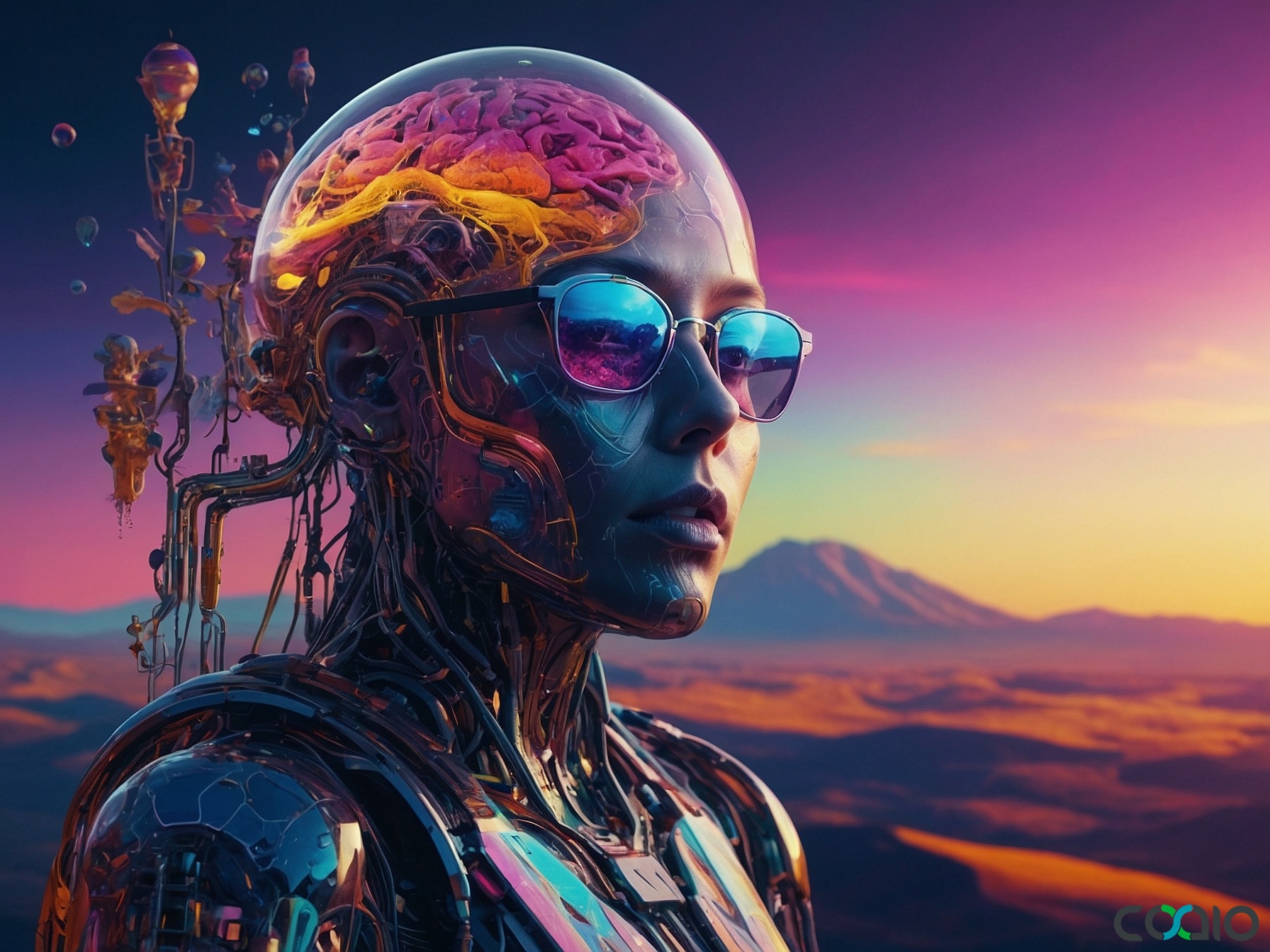
Unraveling the Latest Shifts in Software Development: AI Risks, Modernization Challenges, and Innovation Trends in 2025
As we step into August 2025, the software development landscape is buzzing with transformative challenges and opportunities. From the perils of legacy code to the rapid integration of AI-driven tools, developers and businesses are navigating a complex ecosystem that demands agility, security, and strategic foresight. This article dives into the most recent headlines, drawing from reliable sources like SD Times and TechCrunch, to explore how these trends are reshaping the industry. With AI’s growing role in coding and the persistent issues of data quality, it’s clear that software development is at a pivotal crossroads. Let’s break down the key stories from the past week and their implications for the future.
The Challenges of Code Modernization in Large Enterprises
In the fast-paced world of software development, legacy systems remain a double-edged sword. Enterprises often grapple with outdated codebases that have powered their operations for decades, offering stability but posing significant risks when updates are needed. A recent article from SD Times highlights this “code modernization conundrum,” where companies must balance the chaos of refactoring with the potential for catastrophic failures Read more. For instance, platforms handling millions of concurrent users rely on intricate SQL procedures and business logic that, if altered incorrectly, could disrupt services for vast user bases.
This issue is particularly relevant for growth-stage firms looking to scale. The SD Times piece, published on July 30, 2025, describes how even minor changes can ripple through systems, leading to downtime or errors in high-traffic environments. As businesses push for modernization to incorporate new technologies like cloud-native architectures, the stakes are higher than ever. Developers face the daunting task of updating code without breaking what’s already working, a process that requires meticulous planning and expertise.
The broader implications extend to cost and efficiency. According to the article, enterprises are investing heavily in tools and teams to manage these transitions, yet many struggle with the human element—finding skilled professionals who can navigate both old and new systems seamlessly. This is where outsourcing specialized development services can make a difference, helping companies mitigate risks and accelerate progress.
Security Risks Posed by AI-Generated Code
AI’s rise in software development has been nothing short of revolutionary, but it’s not without its pitfalls. Veracode’s latest research, as reported by SD Times on July 30, 2025, reveals that nearly half of all development tasks involving AI-generated code carry major security vulnerabilities Read more. Attackers are leveraging AI to exploit these weaknesses faster than ever, turning what was meant to be a productivity booster into a potential liability.
The report details how AI tools, while excellent at producing functional code quickly, often overlook critical security best practices. This enables less-skilled hackers to identify and exploit flaws, escalating the sophistication of cyber threats. For developers, this means an urgent need to integrate robust security checks into their workflows, such as automated vulnerability scanning and code reviews. The consequences of ignoring these risks are severe: data breaches, financial losses, and eroded trust from users.
In the context of modern software projects, this underscores the importance of hybrid approaches that combine AI’s speed with human oversight. Businesses, especially startups aiming for rapid deployment, must prioritize security from the ground up to avoid costly rework. As AI continues to evolve, addressing these vulnerabilities will be key to sustainable development practices.
The Overlooked Crisis of Data Quality in AI Adoption
AI’s promise has driven widespread adoption, but as SD Times pointed out in an article from July 31, 2025, many companies are facing a hidden crisis: poor data quality Read more. Rushing into AI without solid data foundations has led to unreliable outcomes, where even advanced algorithms falter due to flawed or incomplete information. This strategic oversight extends beyond minor inefficiencies, potentially derailing entire projects and amplifying business risks.
The piece explains that organizations built AI applications on data infrastructures not designed for the task, resulting in biased models, inaccurate predictions, and operational failures. For example, in sectors like finance or healthcare, where decisions based on AI can have real-world impacts, subpar data quality could lead to compliance issues or ethical dilemmas. The article emphasizes that data quality isn’t just an IT concern—it’s a C-suite priority that demands proactive investment in data governance and cleaning processes.
This trend highlights a broader lesson for the software development community: AI’s effectiveness is only as good as the data it’s fed. As companies pivot to AI-driven solutions, they must address these foundational gaps to ensure long-term success. This is particularly crucial for ventures in competitive markets, where data-driven insights can make or break innovation efforts.
Key AI Updates and Innovations from July 2025
The past month has been a whirlwind of AI advancements, as chronicled in SD Times’ roundup from July 31, 2025 Read more. One standout development is Google’s Opal tool, which empowers users to create mini AI applications without any coding knowledge. By chaining AI prompts and models, Opal democratizes app development, making it accessible to non-technical creators and accelerating prototyping for startups.
Other updates include enhancements in AI model efficiency and integration tools from major players like OpenAI and Microsoft, focusing on ethical AI and energy-efficient computing. These innovations are poised to transform how software is built, with no-code and low-code platforms gaining traction. For instance, Opal’s launch could reduce barriers for entrepreneurs, allowing them to iterate quickly on ideas without extensive technical teams.
However, as with any rapid innovation, there’s a need for caution. The roundup warns that while these tools boost productivity, they also introduce new challenges, such as maintaining quality and security in user-generated AI apps. This wave of updates signals a shift toward more inclusive development ecosystems, where AI bridges the gap between vision and execution.
Venture Capital’s Role in Shaping Tech Investments
Beyond the technical realm, the funding landscape is evolving, as evidenced by TechCrunch’s report on August 1, 2025, about venture firm CRV raising $750 million for its twentieth fund Read more. This move comes after CRV returned capital to investors, signaling a strategic downsizing amid market fluctuations. The firm’s focus on early-stage tech companies underscores the ongoing demand for innovation in software development, even in uncertain economic times.
This development reflects broader trends in venture capital, where investors are prioritizing sustainable growth over aggressive expansion. For software startups, securing funding like this can mean the difference between scaling successfully or stalling out. CRV’s approach highlights the importance of adaptable business models, especially in AI and modernization sectors, where capital can fuel the next wave of breakthroughs.
As we wrap up this exploration of software development’s latest news, it’s inspiring to think about how these challenges can be turned into opportunities. Imagine a world where innovative ideas flourish without the burden of technical hurdles. This brings us to a creative vision: Picture startups channeling their energy into groundbreaking concepts, knowing that expert partners are handling the complexities. At its core, this vision echoes a commitment to empowering founders—technical or not—to bring their ideas to life with efficiency and minimal risk, fostering a landscape where success hinges on creativity, not complications.
About Coaio
Coaio Limited is a Hong Kong-based tech firm that specializes in outsourcing software development and building dedicated teams in Vietnam. We offer comprehensive services including business analysis, competitor research, risk identification, design, development, and project management, delivering cost-effective, high-quality software solutions with user-friendly designs tailored for startups and growth-stage companies in the US and Hong Kong markets. By partnering with us, you can streamline your development process, reduce risks, and focus on your core vision, turning innovative ideas into reality with expert support.
 English
English
 Français
Français
 Español
Español
 廣東話
廣東話
 中文
中文
 日本語
日本語
 한국어
한국어
 العربية
العربية
 Deutsch
Deutsch

